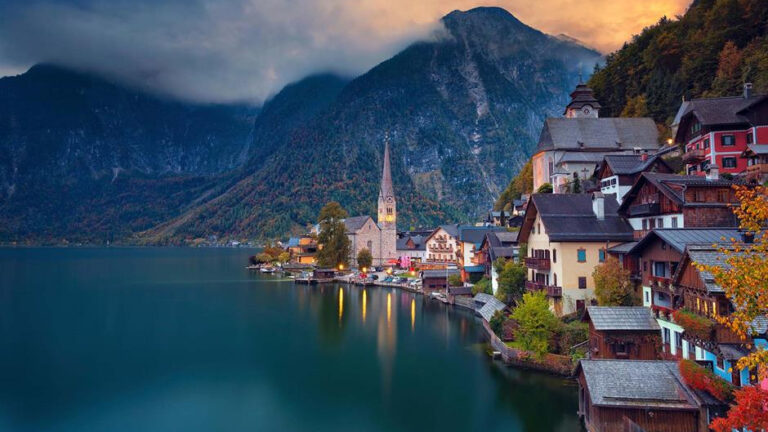As you consider planning a trip to Costa Rica, think of it like packing a fragile vase – one wrong move can shatter your entire experience. With over 2 million tourists visiting annually, it's clear that many have navigated the country successfully, but you'll want to be prepared to avoid common pitfalls. To ensure a stress-free trip, you'll need to be mindful of everything from packing the right gear to navigating local customs. But where do you start? By understanding the essentials of planning a Costa Rica trip, you can set yourself up for a seamless and enjoyable adventure – but what are those essentials, exactly?
Contents
Key Takeaways
- Plan ahead and research activities, transportation, and accommodations to minimize stress during the trip.
- Pack essential items such as a waterproof jacket, comfortable shoes, and travel adapter.
- Be mindful of belongings, especially in crowded areas, to avoid petty crime.
- Consider booking airport transfers and shuttle services in advance for a hassle-free experience.
- Stay informed about Costa Rica's vaccine requirements and necessary vaccinations to minimize health risks.
Planning Your Costa Rica Trip
As you start planning your Costa Rica trip, consider the time of year you'll be visiting, since it significantly impacts the overall experience.
The country has two main seasons: the dry season (December to April) and the green season (May to November). The dry season is the peak tourist season, with higher prices for accommodations and activities. If you're on a tight travel budget, consider visiting during the green season when prices are lower.
When it comes to itinerary planning, Costa Rica offers a wide range of activities and attractions.
You can hike through the Arenal Volcano, zip line through the jungle, or relax on the beautiful beaches of the Pacific Coast. Consider what you want to do and see, and plan your itinerary accordingly.
Prioritize the activities that are most important to you, and leave some room for spontaneity. Be sure to also plan for transportation and accommodations, as these can be a significant part of your travel budget.
With careful planning, you can create a memorable and stress-free trip to Costa Rica. Effective planning will help you stay within your travel budget and make the most of your time.
Packing Essentials for Travelers
Your itinerary is set, and you're one step closer to experiencing the beauty of Costa Rica. Now it's time to focus on packing essentials for a stress-free trip.
When it comes to packing strategies, consider the activities you've planned and the time of year you'll be visiting. Costa Rica's tropical climate means you'll want to pack lightweight, breathable clothing that can keep you cool and dry.
Don't forget to include essentials like a waterproof jacket, comfortable hiking boots, and swimwear.
Travel accessories like a portable power bank, travel adapter, and packing cubes can also make a big difference in your overall travel experience. Packing cubes can help you stay organized and make the most of your luggage space, while a portable power bank ensures you can keep your devices charged on the go.
Consider packing clothes that can be easily mixed and matched to create multiple outfits. This will help reduce the amount of luggage you need to bring and make your trip more convenient.
Staying Safe in Costa Rica
You're now in Costa Rica, surrounded by lush rainforests and stunning beaches, but it's crucial to prioritize your safety.
Petty crime, road accidents, and natural disasters can pose threats to your well-being, so it's essential to take necessary precautions.
Avoiding Petty Crime
When traveling to Costa Rica, petty crime can be a concern, particularly in crowded areas like bus stations and tourist hotspots.
However, with some street smarts, you can minimize your risk of becoming a victim. Be mindful of your belongings, especially in crowded areas or public transportation.
Keep a close eye on your luggage, and consider using a money belt or a secure bag.
Choose secure areas to stay, such as hotels or resorts with 24-hour security.
When exploring, stick to well-lit and populated areas, and avoid walking alone at night.
Be cautious of overly friendly locals who approach you with unsolicited advice or offers.
Keep your valuables out of sight, and avoid displaying signs of wealth, such as expensive jewelry or watches.
Road Safety Measures
Staying safe in Costa Rica isn't just about protecting yourself from petty crime – it's also about navigating the country's roads safely.
When driving in Costa Rica, you'll want to pay attention to speed limits, which can vary depending on the type of road and location. The standard speed limit is 90 km/h (56 mph) on highways and 60 km/h (37 mph) in urban areas.
However, some roads may have lower speed limits, especially in areas with heavy pedestrian or cyclist traffic.
It's also essential to familiarize yourself with Costa Rican road signs, which can be quite different from what you're used to.
Look for signs indicating one-way streets, pedestrian crossings, and speed limits. Additionally, be aware of warning signs for potholes, curves, and other road hazards.
Costa Rican roads can be narrow and winding, especially in rural areas, so drive defensively and be prepared for unexpected obstacles.
Natural Disaster Precautions
In the event of a natural disaster, Costa Rica's unique geography can exacerbate the situation, making it crucial for travelers to be prepared.
As a traveler, you should research the country's emergency procedures and protocols. Familiarize yourself with earthquake preparedness, as Costa Rica is located in a seismically active region.
Know the evacuation routes and emergency shelters in your area. Stay informed about weather conditions, especially during Hurricane season, which typically runs from June to November.
Sign up for emergency alerts from your government's travel advisory website. Keep your phone charged, and consider purchasing a portable power bank.
Make sure you have travel insurance that covers natural disasters. Keep a list of emergency contact numbers, including your embassy and insurance provider.
Be prepared for power outages and disruptions in communication services. Stay calm and follow the instructions of local authorities in the event of a disaster.
When navigating local transportation in Costa Rica, you'll have several options to choose from.
If you're looking for an affordable and authentic experience, public bus options are widely available and relatively inexpensive.
Alternatively, you can rent a vehicle to explore the country at your own pace or book shuttle services for a hassle-free experience.
Public Bus Options
Navigating public bus options in Costa Rica can be relatively straightforward, thanks to the country's extensive network of routes and affordable fares.
You'll find that buses connect major cities and towns, making it easy to get around without breaking the bank. When using public buses, it's essential to be mindful of bus etiquette. Always greet the driver with a "buenos días" or "buenas tardes" when boarding, and be prepared to give up your seat to elderly or disabled passengers.
Rural routes can be a bit more challenging, with less frequent departures and varying road conditions.
However, this is a great way to experience the authentic Costa Rican countryside. You'll often find that rural buses are smaller and more colorful, adding to the charm of the journey. Be prepared for winding roads and potential delays, but also be open to the scenic views and friendly locals you'll encounter along the way.
Renting a Vehicle
Renting a vehicle can be a fantastic way to explore Costa Rica at your own pace, especially if you're planning to venture off the beaten path or visit areas with limited public transportation.
You'll have the freedom to create your own itinerary and stop whenever you want to take in the breathtaking views.
Before renting a vehicle, it's essential to do your research and choose a reputable company.
Be aware of rental scams, and always read reviews from previous customers.
Here are some things to consider when renting a vehicle in Costa Rica:
- Check the vehicle's condition: Make sure the vehicle is in good condition, and report any damages before you leave the rental agency.
- Understand the rental contract: Read the contract carefully, and ask questions if you're unsure about anything.
- Check the insurance options: Vehicle insurance is often mandatory in Costa Rica, so make sure you have the right coverage.
- Verify the rental agency's license: Ensure the rental agency is licensed and authorized to operate in Costa Rica.
Shuttle Services Available
While having your own vehicle can be liberating, it's not the only way to get around Costa Rica.
The country offers various shuttle services that can help you navigate local transportation. One of the most convenient options is to book airport transfers in advance. This way, you'll be greeted at the airport by a driver who'll take you to your destination, eliminating the need to worry about taxis or public transportation.
Many hotels and resorts also offer shuttle services from the airport, so be sure to ask about this when booking your accommodation.
Private shuttles are another great option for getting around Costa Rica.
These services can be booked in advance and can take you to various destinations across the country. They often offer door-to-door service, making it easy to get to your next destination without the hassle of driving.
Additionally, private shuttles can be a cost-effective option, especially if you're traveling in a group. By using shuttle services, you can focus on enjoying your trip, rather than worrying about transportation.
Trying Costa Rican Cuisine
Trying Costa Rican Cuisine
Costa Rican cuisine is a delicious blend of Spanish, African, and indigenous flavors, and trying it's an integral part of the country's cultural experience.
As a traveler, you'll have numerous opportunities to indulge in the local food scene, which is perfect for foodie adventures.
Be sure to try dishes made with local ingredients, such as:
- Fresh seafood: Enjoy the country's abundant seafood, including lobster, shrimp, and fish, often served in traditional dishes like ceviche or arroz con mariscos.
- Tropical fruits: Savor the flavors of Costa Rica's exotic fruits, including mangoes, pineapples, and coconuts, often used in smoothies, salads, or desserts.
- Hearty stews: Warm up with traditional stews made with locally raised beef or chicken, beans, and vegetables.
- Handmade tortillas: Experience the authentic taste of homemade tortillas, often served with beans, cheese, and salsa.
When trying Costa Rican cuisine, be adventurous and open-minded.
Don't be afraid to try new flavors and dishes, and be sure to ask locals for recommendations on the best places to eat.
Respecting Local Culture
As you explore Costa Rica, you'll encounter a rich cultural heritage that's deeply rooted in the country's history and traditions.
To have a positive experience and show respect for the locals, it's essential to understand and follow cultural norms and local etiquette.
Start by greeting locals with a handshake or a kiss on the cheek, as physical touch is an integral part of Costa Rican culture.
When interacting with the Ticos, use formal titles such as "señor" or "señora" until you're invited to use their first names.
Dress modestly when visiting churches or attending cultural events, as revealing clothing is generally frowned upon.
Be mindful of mealtimes, as lunch is typically served between 12 pm and 3 pm, and dinner between 6 pm and 9 pm.
When dining with locals, keep your hands visible on the table and don't start eating until everyone has received their food.
By following these simple guidelines, you'll be able to navigate Costa Rica's cultural landscape with confidence and respect for the local way of life.
This won't only enhance your experience but also leave a positive impression on the people you meet.
Managing Travel Documents
Your respect for the local culture in Costa Rica will go a long way in making your trip enjoyable, but it's also vital to have your travel documents in order to avoid any last-minute stress.
Before you start packing, make sure you have a valid passport with at least six months' validity from your planned departure date.
- Check Costa Rica's visa requirements for your nationality to see if you need a visa to enter the country.
- Verify that your passport has enough blank pages for entry stamps.
- Ensure you have a return ticket or proof of onward travel.
- Make photocopies of your passport and important documents, and leave a copy with a trusted friend or family member back home.
It's also essential to consider travel insurance that covers unexpected medical or travel-related expenses.
Research different insurance options and choose one that suits your needs and budget.
Having the right documents and insurance can give you peace of mind and allow you to focus on enjoying your trip.
Take care of these details before you leave, and you'll be all set for a stress-free adventure in Costa Rica.
Staying Healthy Abroad
Costa Rica's lush rainforests, exotic wildlife, and beautiful beaches can be a haven for travelers, but they also harbor potential health risks that you should be aware of before embarking on your adventure.
To ensure you stay healthy abroad, it's essential to understand Costa Rica's vaccine requirements. Consult your doctor or a travel clinic at least six weeks before your trip to determine if any vaccinations are necessary.
The Centers for Disease Control and Prevention (CDC) recommends that travelers to Costa Rica be up-to-date on all routine vaccinations, as well as hepatitis A and typhoid.
In case of a medical emergency, knowing the procedures for medical evacuations is crucial.
Costa Rica has a well-developed healthcare system, but medical evacuations to the US or other countries may be necessary in severe cases.
Research your travel insurance options and ensure that they cover medical evacuations. Additionally, make sure you have all necessary contact information, including the US Embassy in Costa Rica and your emergency contact back home.
Being prepared and informed will help you minimize health risks and enjoy a stress-free trip to Costa Rica. It's always better to be safe than sorry when it comes to your health.
Frequently Asked Questions
Can I Use My Credit Card in Costa Rica?
When abroad, you can use your credit card, but check for foreign transaction fees. Inform your bank of travel plans to avoid flagged transactions. Also, be mindful of your credit limits to avoid overspending.
Are There Any Specific Vaccinations for Costa Rica?
Let's get real – germs are everywhere. When traveling, you'll want to be prepared. Check the latest vaccine requirements for your destination to avoid any health hiccups. Consider adding travel insurance for extra peace of mind.
Can I Drive a Rental Car With a US License?
You can drive a rental car with a US license in Costa Rica. Before crossing the border, ensure your rental car insurance covers international travel and border crossing, and check local requirements to avoid any issues.
Is Surfing Suitable for Beginners in Costa Rica?
You'll find surfing suitable for beginners in Costa Rica, thanks to numerous surf camp options and gentle beach breaks. Many camps offer lessons and rentals, making it easy to catch your first waves.
Do Costa Rican Hotels Have Wi-Fi Access?
As you step into your Costa Rican haven, you'll find a digital oasis. Most hotels offer reliable Wi-Fi access, even in rural areas, as a standard amenity, ensuring you stay connected amidst the lush surroundings.
Conclusion
As you embark on your Costa Rican adventure, imagine yourself standing on a lush mountain peak, the vibrant culture and breathtaking landscapes unfolding before you. With these insider tips, you'll navigate the country's twists and turns with ease, your path illuminated by knowledge and preparation. Like a well-worn map, your journey will be etched with unforgettable experiences, each step a testament to the Pura Vida spirit that defines this enchanting nation.









